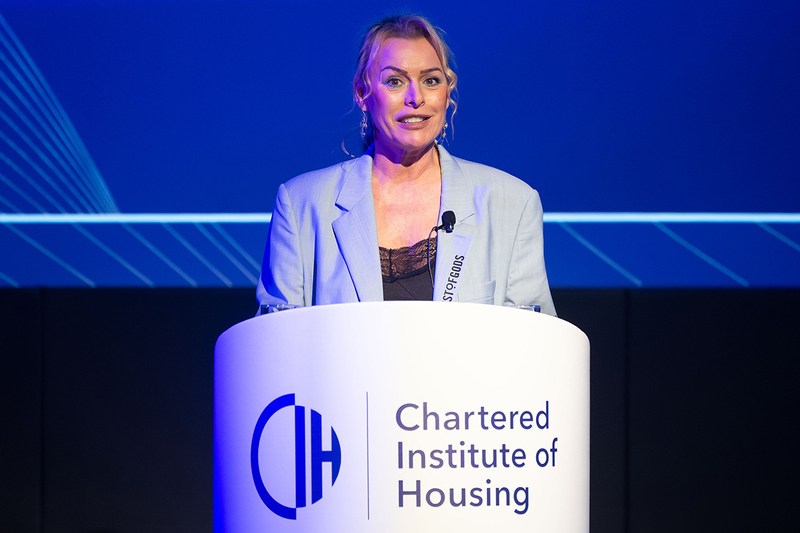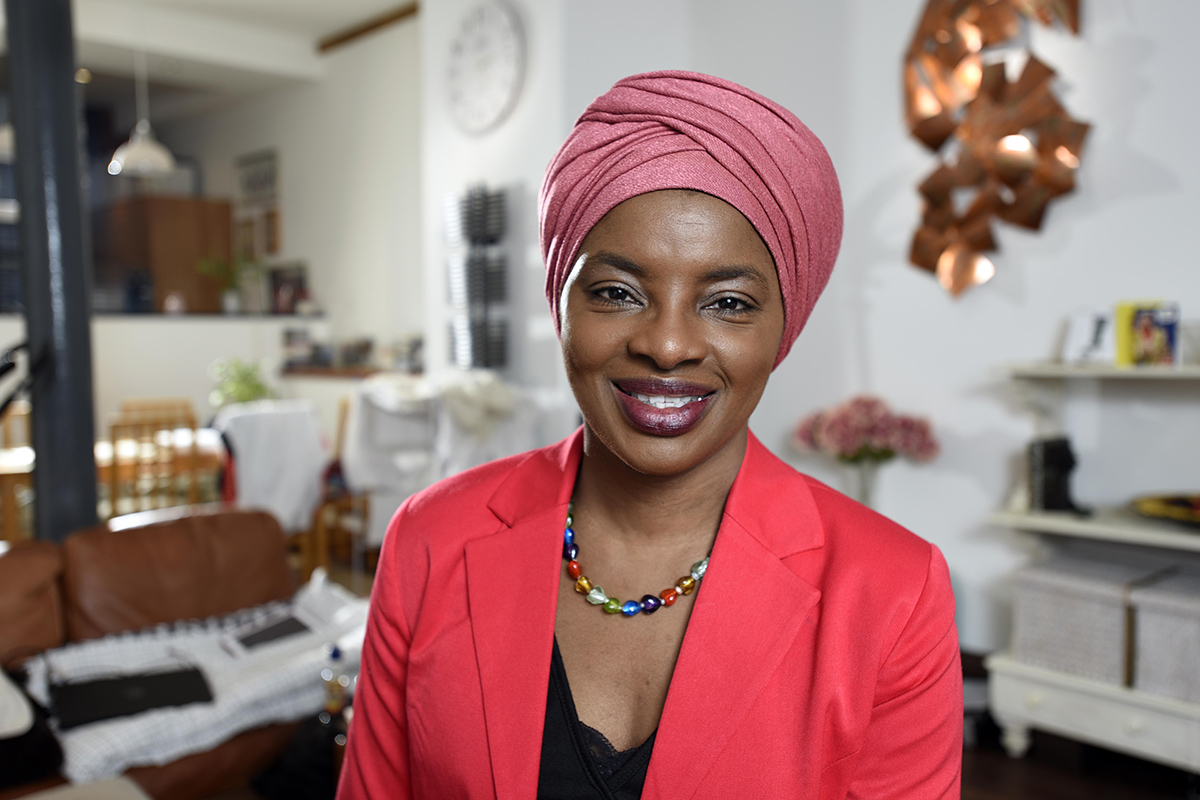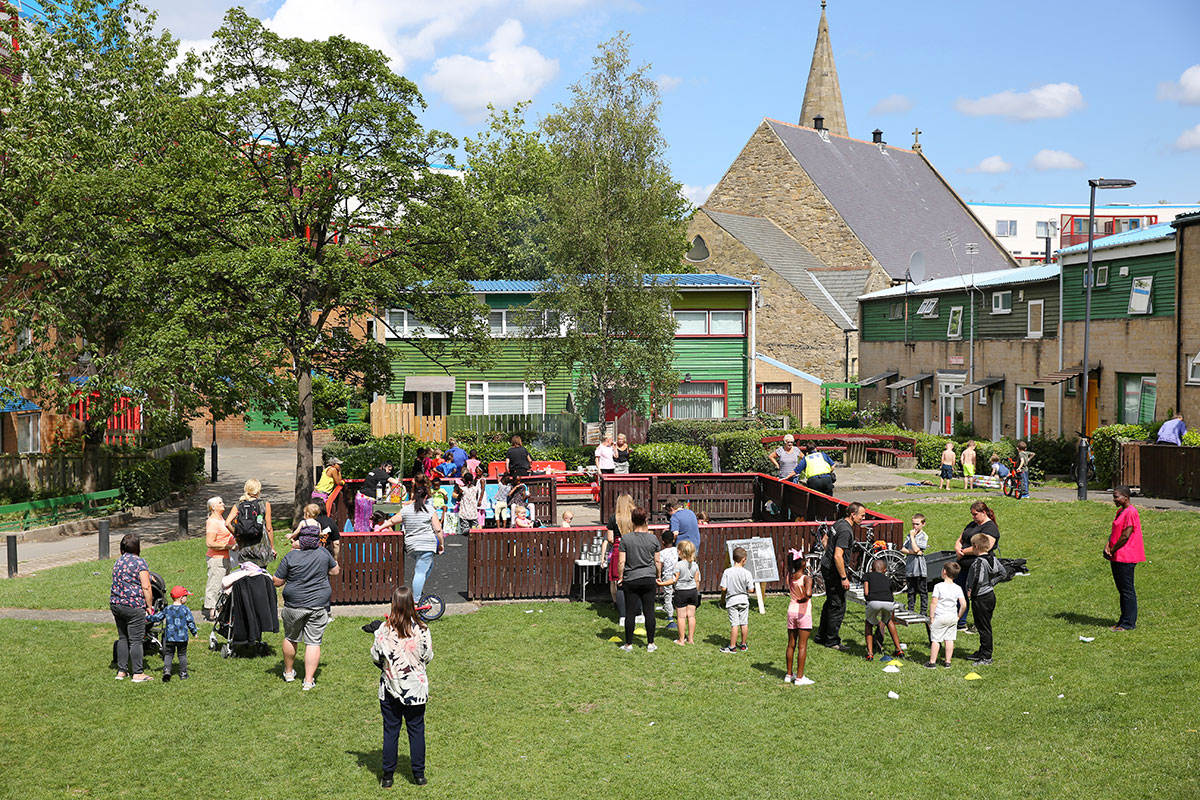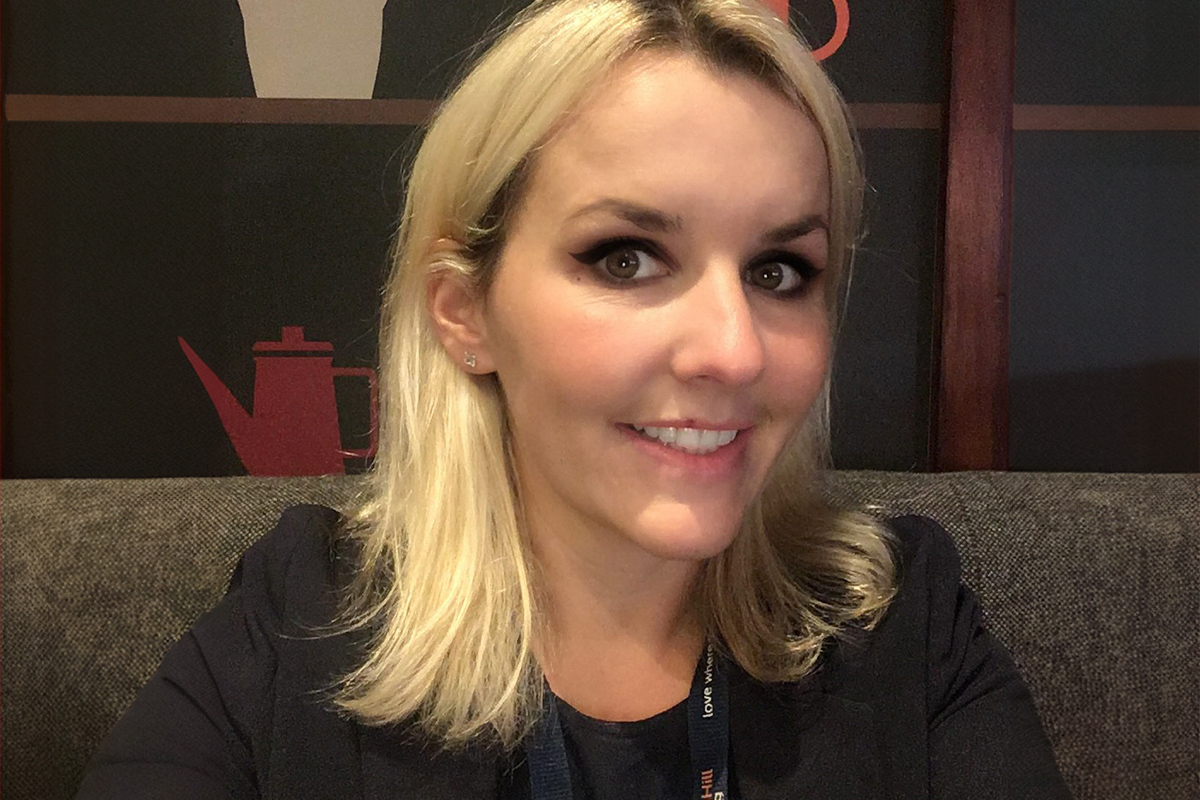How Jill Murray made housing EPIC again
The past year has taken Jill Murray up mountains, into Downing Street, and onto the stage as president of the Chartered Institute of Housing. She tells Martin Hilditch about her campaign to make housing EPIC
Jill Murray has ticked lots of things off her bucket list over the past year. Professionally and personally, it has been a year with some incredible highs. First, she took over as president of the Chartered Institute of Housing (CIH) – “the best job” – launching the EPIC campaign (more of which shortly).
In February, she stood before her peers in the sector on the stage at the CIH’s presidential dinner and in a powerful speech, talked them through her personal journey, and what a career in housing has meant to her. Her friend also took to the stage to pay her a tribute – Sir Keir Starmer, now prime minister and a close friend of her husband John, who she married last year.
It says a lot about her that she is reluctant to talk about Sir Keir in this interview, both because the CIH is an apolitical organisation, but also because of how fiercely protective she is of the friendship. Suffice to say that she can be spotted in the huddle of friends, family and colleagues standing behind Sir Keir as he made his first speech as prime minister in front of 10 Downing Street (see picture, below).
Then, in July, there was a trek up Scafell Pike, England’s highest mountain, to raise money for Action for Children, as part of her presidential campaign.
Finally, she has just taken over as chief executive at Launchpad, a homeless veterans’ charity, a role that she is already throwing herself into with her usual passion and energy; anyone who has ever met her will know she is the kind of energetic presence who sports commentators would say “gives 100%”.
She is also someone not afraid to challenge the status quo – as an example, at her request, we will call her Jill during this interview, rather than Inside Housing’s usual house style of Ms Murray (“I know journalists all do it, but I would ask you as journalists to think again about that,” she says).
Childhood trauma
If that is the précis of a year, what it does not capture is the story that led Jill not just to Scafell Pike but to the peak of her profession, and how that has informed her campaign (and, indeed, her entire career). Inside Housing met up with her virtually to talk about how her childhood and early experiences in the sector have driven her approach, and what she is hoping to have achieved in her year as president.
Jill’s Sunderland childhood was one in which she was surrounded by love, but she also faced incredible trauma. Her dad was diagnosed with cancer and given months to live while her mum was still pregnant with her, and died when she was just 11 months old.
Her mum, an NHS nurse, was “left with four kids under nine”. Jill’s description of her mum will ring bells for anyone who knows the CIH president. “She was a values-driven individual and she used to do a lot for charity,” Jill says. “And she continued to nurse as well as bringing four kids up.” When she was 13, Jill’s world was turned upside down when her mum died suddenly. “I went to school as normal one day and my mum, who wasn’t ill, wasn’t in a high-category risk group, went to work as normal that Friday morning and dropped down dead. My dad’s mum came to school with my sister and I was brought out of the classroom and my life just fell apart really.” She stayed with her grandmother and, when she went home for the funeral, she found out her dog had been put down.
“I ended up so angry with the world. I was just in despair. It was an awful time for me. I went to stay with different relatives and family friends because I was abusive, aggressive, just without control. I was smashing places up.”
Looking back, she says she could not cope with what had happened and “nobody could cope” with her. “I was destined for local authority care, because I wouldn’t go to school and I refused to entertain anybody and was just so awful.”
Thankfully, at her lowest point, her older sister intervened. Her sister was then in her early 20s and had just got married. She sat Jill down and invited her to live with them – but asked that in return she started being more respectful of the people around her.
Jill moved in and, although she suffered with nightmares for many years, the stability and support her sister and brother-in-law provided was a turning point.
“Knowing that somebody wanted me, and that I had my space, my room in the house, meant I could start again. It was a new beginning with me. And they told me, at 21 years old, ‘You can achieve anything you want, but you’ve got to decide that’s what you want to do.’”
After working hard at her O-Levels, Jill’s life changed again when she was 16 and the careers office sent her for a job at Sunderland Council’s housing department, then run by Peter Walls, who went on to become the chief executive at stock transfer housing association Gentoo.
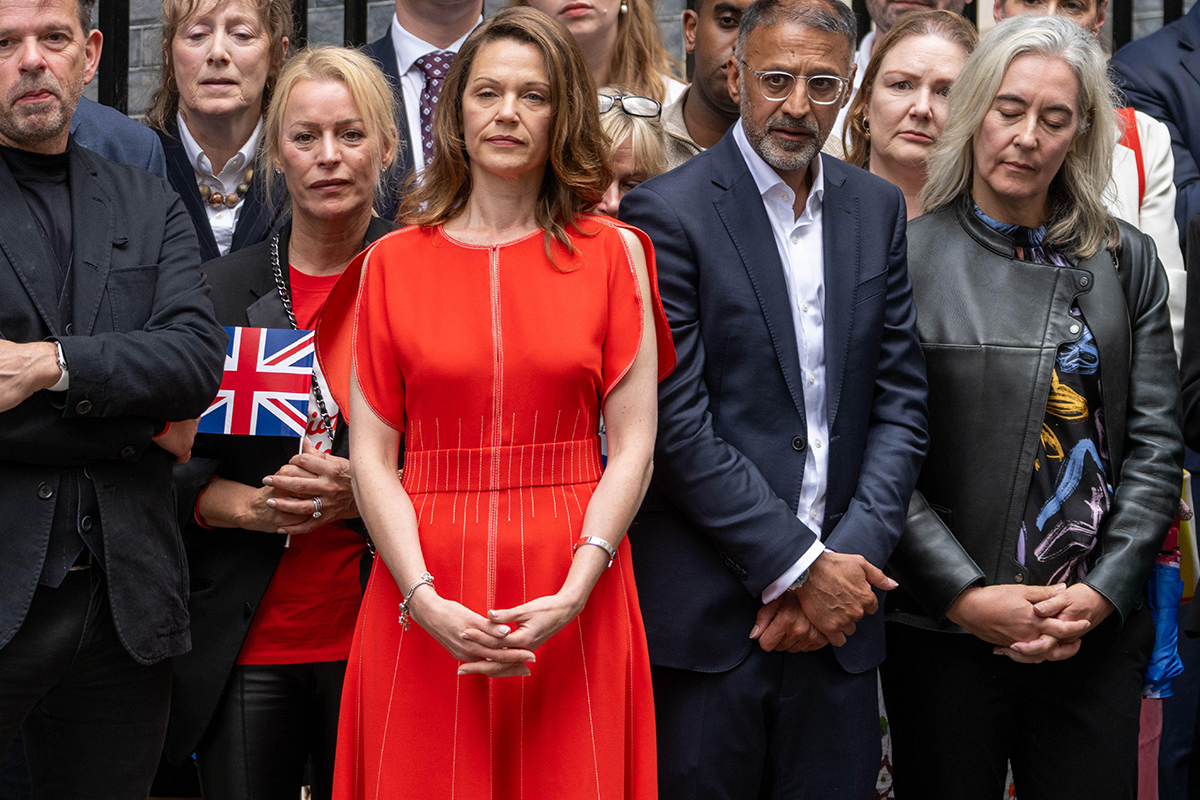
Today, she describes the Peter Walls of the ’80s as “a bit funky” and wearing “flamboyant clothes”. In turn, he likened her to punk icon Siouxsie Sioux “because I had maroon hair which was spiky”. While today that style would barely cause a shrug, at 1980s Sunderland Council it caused some comment. A memo from one of the bosses “which I was just disgusted at” stated that they would “prefer if you didn’t wear outlandish attire for work”.
“I didn’t see any members of the public,” she recalls. “I thought that’s got nothing to do with it [how I do the job].”
Today she describes it as the “clash of this outlandish kid who wanted to do a good job” and an office “full of all these people who were very conservative”. Mr Walls’ advice? “Just be yourself, just keep being yourself, don’t change.”
She did keep being herself, but she did change and develop, with a passion for learning and a desire to develop her career. And a fledgling magazine called Inside Housing played its part, too.
“I would read it cover to cover and think, ‘What’s this about, how do I get more involved?’ And between Peter Walls and Inside Housing, I was really inspired by housing at that very young age. I thought, ‘I must do more, I must find a way to become CIH-qualified.’ Although it [a CIH qualification] wasn’t mandatory, you did have to have it to become a manager.”
Fast-forward 40 years and after a successful career, which included senior roles at Gentoo before she became chief executive of Byker Community Housing Trust, Jill wanted to give something back. She put herself forward to become CIH vice-president (who is elected into the role by members, then becomes president the next year). It is not a big stretch to see the links with her formative years when you think about her presidential campaign. Over the past year, she has been encouraging the sector to be EPIC, which she defines as being Educated, Professional, In Control and Chartered Institute of Housing. It is difficult not to imagine her as a teenager flicking through her copy of Inside Housing, being proud not just of the campaign, but of the fact that she has stuck to those same values throughout her career.
Obviously, qualifications in housing have been a topic of much discussion over the past couple of years. The previous Conservative government had pledged to introduce mandatory qualifications for housing managers “to protect residents and raise standards in the sector” – and the new Labour government has signalled its support, too. There have been some concerns in the sector over cost and potential difficulties filling roles while people train, or that it might discourage people from joining the sector in the first place. But, broadly speaking, there is support for, at the very least, the reasoning behind the changes. And for Jill, who has seen education play a massive role in her own career development, it is an important focus.
Being professional
Jill recalls a former colleague once telling her that “confidence comes from competence”. She says: “My competence in my role allowed me to be that person who would put my head above the parapet.”
If education and knowing your stuff is one step to becoming EPIC, what about being professional? Arguably, much of the criticism levelled at the sector in recent years relates to the interaction between residents and their social landlords. Getting this right is as important as the formal education, Jill states.
“Being professional is about having professional attitudes and behaviours,” she says. She cites one example: shortly after she became chief executive at Byker, there was a protest outside the housing association’s office about a variety of issues.
Jill invited the protesters in for tea. She talked to them “about what I could do, how I could help them and how they could help me by being involved”. She also talked to them about how they could get involved in the future strategy for the organisation.
“Their reply to me was, ‘Well, you seem like a canny lass, even though you’re from Sunderland.’ And that was the icebreaker for me.”
The serious point here is that being professional includes both an “element of humility”, as well as technical and personal competencies.
The next element of having an EPIC housing career is being in control. What exactly does she mean by this? Well, control comes down to taking personal responsibility for your own development – as Jill did all those years ago when she flicked through Inside Housing and sought out her CIH qualifications.
“Opportunities didn’t happen for me, I made them happen,” she states. Indeed, even her presidency is an example of this. She first put herself forward to become CIH vice-president in 2021, but did not get the most votes. She went away, thought about her approach (which included building more of a social media presence), returned and won a second vote.
“You’ve got to make opportunities happen,” she says.
As for the CIH? “They’re the professional body. They’ve been there since year one for me and they are there [for me] now. I want to see the sector embrace EPIC as their polestar, and I want to see more CIH members because that will keep that cycle flowing.”
It has been an amazing year that caps an incredible, and ongoing, contribution to the sector. As Sir Keir said in his address to the CIH presidential dinner earlier this year: “Jill, what a story, starting out as the general office clerk making the tea, to rising to be the president of your professional body.”
But the last word should go to Jill herself: “From a 16-year-old who started in the [Sunderland] Council housing department to where I am now – yeah, it’s really a Cinderella-type story.”
Recent longform articles by Martin Hilditch
100 years of Midland Heart: Glenn Harris reflects on the past and sets out his plans for the future
Midland Heart celebrates its 100th birthday in 2025, and its chief executive has ambitious plans for the future. Glenn Harris tells Martin Hilditch why the next five years will be a significant milestone in the housing association’s history
Ian McDermott talks Peabody’s big merger and the future of social housing
Ian McDermott, chief executive of Peabody, sits down with Inside Housing’s editor Martin Hilditch to talk mergers, housing management at one of the sector’s biggest landlords and how the sector can build more homes
‘The North really needs that voice’: 50 years of the Northern Housing Consortium
2024 marked the 50th anniversary of the Northern Housing Consortium. Chief executive Tracy Harrison talks about her proudest achievements with Inside Housing editor Martin Hilditch – and what the future holds for the North’s housing providers
Plan for Housing campaign: a big opportunity for an ambitious government housing strategy
Inside Housing has joined the National Housing Federation’s #PlanForHousing campaign. Its chief executive Kate Henderson tells Martin Hilditch why the next few months are critical to the future of housing in England
Sign up to our Best of In-Depth newsletter
We have recently relaunched our weekly Long Read newsletter as Best of In-Depth. The idea is to bring you a shorter selection of the very best analysis and comment we are publishing each week.
Already have an account? Click here to manage your newsletters.
